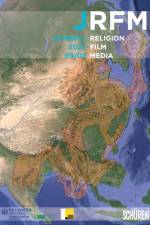von Frank Bosman
16,90 €
Paradise Lost is not only the title of John Milton's famous epic poem (1667) but also a philosophical-theological notion linked to and emerging from the Fall from Eden in Genesis. It expresses - or imagines - the human experience of a definite rupture in history, with its inextinguishable urge to return to the time before the rupture and its yearning for an idealized version of this past. Throughout history, this longing has been expressed in artwork, architecture, and literary works, and it is perhaps best observed in the Romantic era, with its preference for the past, the future, and the contemporary exotic.Today, the notion of "Paradise Lost" has far from disappeared, finding postmodern manifestations in contemporary art and literature as well as in the revival of (secular) nationalism and (religious) fundamentalism. The 20th and 21st centuries have also seen the emergence of new arenas for narratives and iconographies of "Paradise Lost": popular culture and digital games. Within the field of game studies and the history of digital games, their technological developments, their game play, and their graphics and user interface design, the notion of "Paradise Lost" can be traced in three ways.(1) In the past decade, the game industry has been witnessing a surge in retro-gaming as a kind of narratological, ludological, visual, and technological longing for the early age of gaming. For example, some modern games have (re-)introduced the concept of perma-death (Wasteland 2 [Deep Silver, AT 2014], Hades [Supergiant Games, US 2020], Xcom [various, 1994 - present], the Diablo series [Diablo, Diablo II and Diablo III, Blizzard Entertainment, US 1997 - present]), and retro-graphics has become a deliberate design approach in contemporary games (Cuphead [Studio MDHR, CA 2017], Celeste [Matt Makes Games, CA 2017], Undertale [Toby Fox, US 2015]).(2) The industry - and the consumer - has also witnessed the emergence of various remakes of old-school classics (1942 [Capcom, JP 1984], Baldur's Gate [various, 1996-2016], Oddworld: Abe's Exoddus [GT Interactive, US 1997] and Oddworld: Soulstorm [Oddworld Inhabitants, US 2021]). In other words, the present longing for the past, or for the early (or golden) age of gaming, manifests itself in and through the game.(3) Some games explicitly employ and reflect on the idea of a rupture in human history, that is, the loss of an earlier (potentially utopian) state that is yearned for but beyond reach (for example, Horizon Zero Dawn [Guerilla Games, NL 2017]). This lost period could be medieval times, paradise, pre-9/11, pre-COVID in light of prolonged lockdowns, and so forth.



